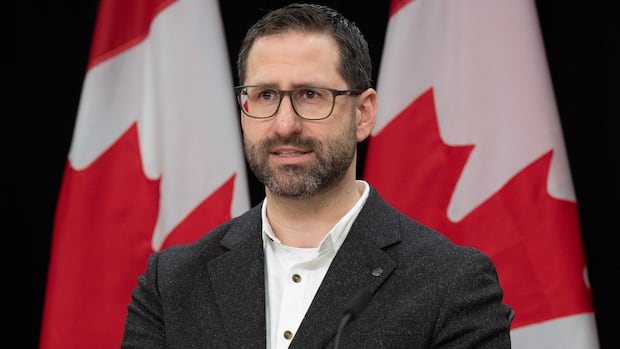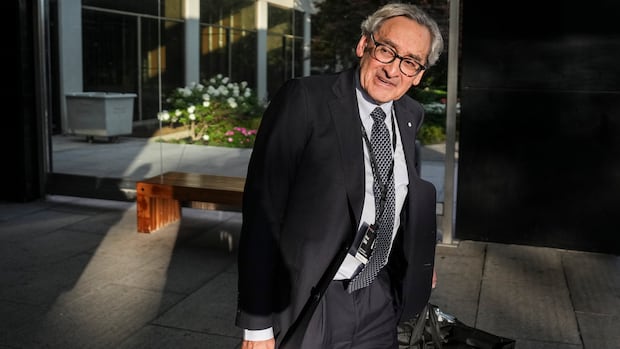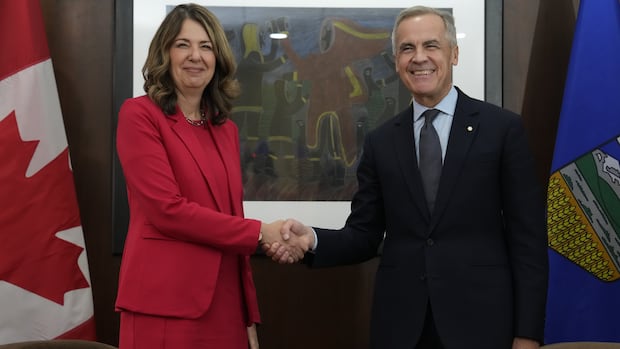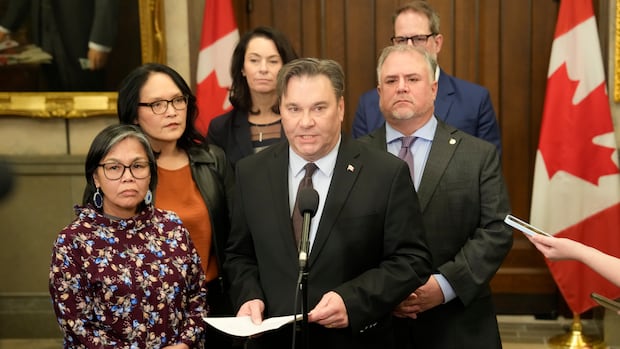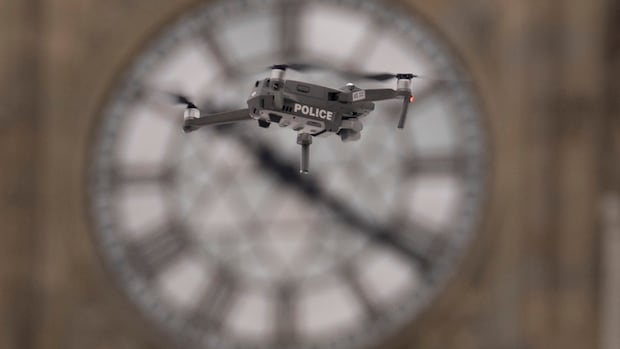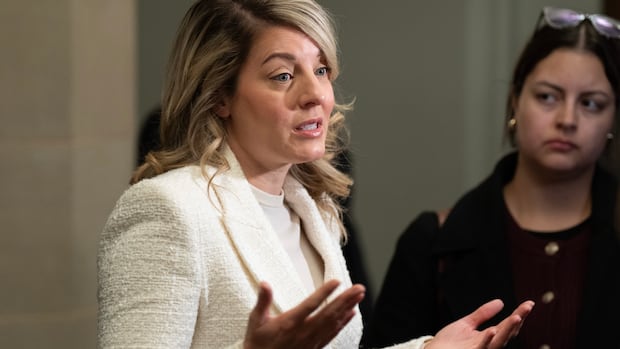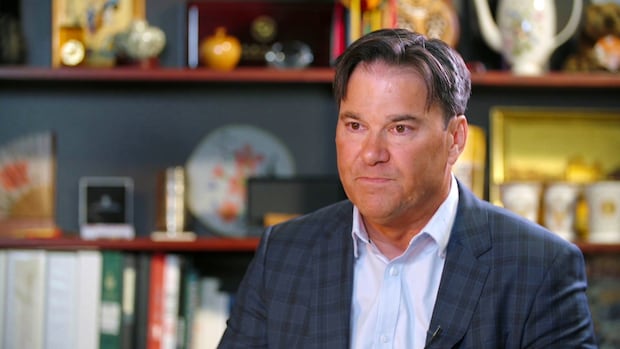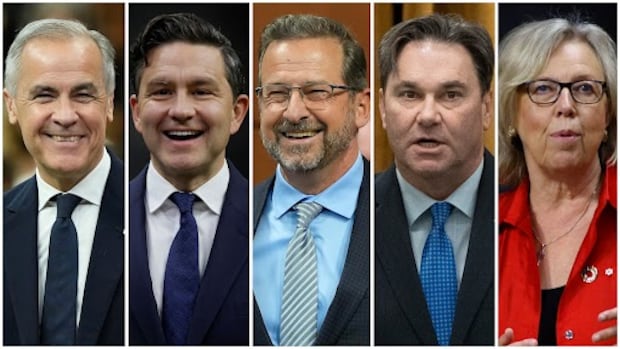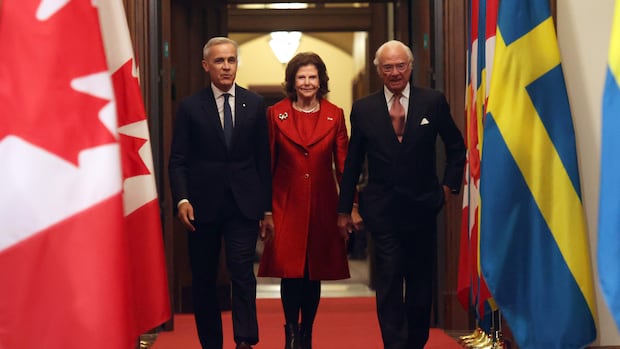Listen to this article
Estimated 5 minutes
The audio version of this article is generated by text-to-speech, a technology based on artificial intelligence.
Privy Council Clerk Michael Sabia — one of two men tasked with preventing Prime Minister Mark Carney from making decisions in office that would benefit his personal wealth — says the prime minister’s ethics screen is activated when there is “even a remote possibility that it is needed.”
Sabia, the country’s top bureaucrat, testified Wednesday evening in Ottawa as Conservative MPs on the House ethics committee continue to question whether Carney has profited from his policy decisions.
“From the moment a flag is raised, a screen is imposed,” Sabia told the committee.
The ethics screen was established earlier this year after Carney disclosed all his assets to the federal ethics commissioner, who administers the Conflict of Interest Act for public office holders.
Carney transferred a majority of his assets — with the exception of some cash, his home and cottage — into a blind trust shortly after he won the Liberal leadership this year.
A blind trust means the trustee is the legal owner of the assets and can buy and sell them as they see fit. The trustee is barred from seeking input from Carney — and Carney is barred from knowing what assets are in the trust.
Carney’s disclosure to the ethics commissioner listed his assets before the trust was created. The ethics screen is meant to prevent Carney from taking part in decisions that can be seen to benefit the assets as they stood before they were put into the blind trust.
Carney’s ethics screen involves over 100 companies in which he had some stake, meaning he cannot be involved in any decision-making processes that would further those companies’ interests while he remains prime minister.
Sabia said to date, the screen has been raised in 13 instances. It was later determined that it wasn’t applicable in seven of those cases, but was applied in six — meaning Carney was blocked from decisions in those half-dozen instances. All were double-checked with the ethics commissioner, Sabia said.
Sabia didn’t elaborate on specifics, but he said in the cases where the screen was ultimately dropped it was because the decisions had no interaction with the companies listed in the disclosure. He said he would provide details to the committee regarding the cases where the screen was raised, other than ones that are still in place.
The Conflict of Interest Act includes rules, guidelines and timelines meant to prevent office holders from making decisions that might benefit themselves or their families.
WATCH | Can Carney avoid conflicts of interest?:Conservative Leader Pierre Poilievre says he wants Prime Minister Mark Carney to sell the assets he put into a blind trust to avoid conflicts of interest. Power & Politics digs into how blind trusts work and whether they go far enough with Ian Stedman, associate professor of Canadian public law and governance at York University.Carney served as board chair of Brookfield Asset Management before entering Canadian politics and has held several other prominent roles in the world of finance, including leading both the Bank of Canada and Bank of England.
The law dictates the prime minister, cabinet ministers and parliamentary secretaries are not allowed to own "controlled assets,” which are assets that could be directly or indirectly affected by government decisions or policy including stocks, bonds and closed-end mutual funds, among others.
Elected officials in those roles are required to either sell the publicly traded assets in an arm's-length transaction or put them in a blind trust.
Opposition MPs have questioned whether the laws go far enough.
Conservative MP John Brassard, the chair of the ethics committee, questioned Sabia on whether an office holder’s assets should be totally divested, rather than put in a blind trust, to avoid even the remote perception of a conflict of interest.
“We’re talking about the confidence Canadians have in the office holder in the highest office of the land. Do you not believe [total] divestment should be the option?” Brassard asked.
Sabia argued that the current system is rigorous, but said it is up to parliamentarians if they want to update the rules. He also cautioned about striking a balance, suggesting that overcorrecting could act as a “barrier” for “talented” Canadians from transitioning from the private sector into public service.
The screen is administered by Sabia and Marc-André Blanchard, Carney's chief of staff. It specifically references "any official matters or decision-making processes" involving Brookfield and Stripe, the digital payment company where Carney was also a board member.
According to his public filing, Carney held assets in both firms at the time of divestment.
The value of those holdings was not disclosed, but according to Brookfield Asset Management's 10-K report filed with the U.S. Securities and Exchange Commission, Carney had $6.8 million US worth of unexercised stock options as of Dec. 31 — the value of which has fluctuated since.


